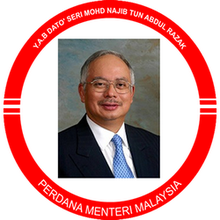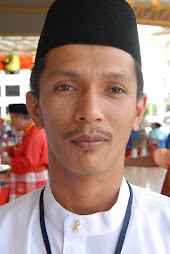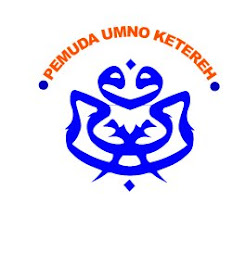
After the general election of March 8, Umno is floundering and is hard-pressed to find its way out of the morass that it and its coalition partners are stuck in. Currently in the throes of a leadership overhaul, it must change - and change drastically - if it is to be relevant to a rapidly changing Malaysia.
Umno and its partners must remember that they obtained less than 50% of the popular votes in peninsular Malaysia and that they rule at the Federal level in large part to a near total victory at the polls across the South China Sea in Sabah and Sarawak. They must therefore pay close heed to why that happened, and take the necessary action.
Not to do so would be to imperil their collective future as political parties when they stand to lose their majority in Parliament at the next polls to the Pakatan Rakyat coalition spearheaded by Datuk Seri Anwar Ibrahim’s PKR, assuming that they do not lose their current majority via the threatened cross-overs from their own ranks.The unmistakable winds of change are blowing, and not to bend with it may mean reaching breaking point. Here are 10 things we figure that Umno - and its coalition partners in Barisan Nasional - must do or push for the Government to do to keep themselves relevant.
It’s not an exhaustive list but it is a starting point and it applies just as well to Umno’s partners. But we focus on Umno because that’s where change must start for Barisan Nasional.
1. Be a true champion of Malays.Somewhere along the way, the Umno train became derailed in terms of serving the genuine and pressing needs of the Malay masses. Instead the focus came to rest on things such as contracts, companies, cuts, equity stakes and such - in other words the enrichment of a relative few in the community.Sometimes such things have been at the expense of the interests of the country when businessmen (including some from other communities) got deals which were too good from the Government. That is already bad but this was coupled with less attention and intelligent effort on vital areas such as education which has set the clock back in some cases.
2. Put a full stop to money politics.The best way of doing this is to simply get the Anti-Corruption Agency into the act to stop vote buying and tampering. It is against the law to buy votes, so let the law enforcers in - it cannot be kept as purely a party matter and only for the party’s disciplinary committee to deal with. Only if such measures are taken will Umno members and the general public be convinced that the leadership wants to do away with money politics once and for all.
3. Renew the fight against corruption.The evidence of corruption is all over the place if one cares to look for it - people living beyond their means, questionable contracts, strange land deals and so on. These are all at great cost to the nation and an immediate stop must be put to such things.Measures already considered for more independent law enforcement as well as prosecution of offenders must be put in place to give real meaning and effect to fighting corruption instead of just lip service.
4. Put serious checks against patronage and its abuse.It may be just too much to expect the nexus between business and politics to be nixed just like that. But certainly a lot, lot more can be done to ensure that patronage politics does not do undue damage to the interests of the country.One easy way of doing that is to ensure that the awarding of contracts is more transparent and follows guidelines. The next point shows how this can be done.
5. Set benchmarks for all contracts and procurements.There are international benchmarks available for the procurement of all manner of goods and services. It is also possible to employ consultants at a fraction of the cost of a project to determine benchmark prices and to oversee the project to see that it is finished according to acceptable standards. Doing such simple things ensures that the Government never needs pay excessive sums for goods and services while ensuring that they are up to international standards.
6. Be less racial.It must be pretty obvious by now that Malaysian communities are not taking too well to the tried and tested means used by the politicians of yore - race - of increasing their appeal to their own communities. If that does not change, there is great risk of polarising some sections of the voting public - and these days you can’t afford that, as the not-so-recent elections showed. Policies these days must appeal to the broader mass of Malaysians.
7. Be more tolerant in terms of religion.Religious issues have often been deliberately manipulated by all shades of politicians for their own narrow benefits, not of the community even but of the politicians who seek to be champions of their own race and religion.There are real problems of religion, especially when it comes to things like conversion and the rights of individuals. These won’t go away if their honest, frank and considered discussion is suppressed - they merely surface somewhere else. Politicians must facilitate the discussion of religious issues rather than suppress it, in the spirit of acceptance and tolerance.
8. Cut the emotive content in language issues.Long ago, Bahasa Malaysia was accepted as the national language. There is no issue there. What we have to do is to think of how we can get our people to equip themselves with everything that they need to thrive in a very competitive world.One of that is mastery of the English language and we must not let our affection for the Malay, Chinese and Tamil languages stand in the way of that. If we can’t agree, then perhaps the best way is to give people genuine choice in the kind of education they want. As long as language gets politicised, it’s going to be very difficult to move forward.
9. Become more accommodative rather than confrontational.The old mode of working among the BN coalition was to shout and to draw the lines and this was especially so with Umno. The approach was well, rather confrontational. And, of course, when the lines are drawn, they are pretty difficult to redraw. It would be far better to seek reconciliation through accommodation and consultation instead. In that mode, chances for solution - rather than stop-gap measures - are infinitely better.
10. Be a true champion of Malaysians.The time has come for all parties to think of themselves as Malaysians and see how we all as a group can move forward. If we help all the disadvantaged amongst us, automatically the most disadvantaged communities will be helped more
2. Put a full stop to money politics.The best way of doing this is to simply get the Anti-Corruption Agency into the act to stop vote buying and tampering. It is against the law to buy votes, so let the law enforcers in - it cannot be kept as purely a party matter and only for the party’s disciplinary committee to deal with. Only if such measures are taken will Umno members and the general public be convinced that the leadership wants to do away with money politics once and for all.
3. Renew the fight against corruption.The evidence of corruption is all over the place if one cares to look for it - people living beyond their means, questionable contracts, strange land deals and so on. These are all at great cost to the nation and an immediate stop must be put to such things.Measures already considered for more independent law enforcement as well as prosecution of offenders must be put in place to give real meaning and effect to fighting corruption instead of just lip service.
4. Put serious checks against patronage and its abuse.It may be just too much to expect the nexus between business and politics to be nixed just like that. But certainly a lot, lot more can be done to ensure that patronage politics does not do undue damage to the interests of the country.One easy way of doing that is to ensure that the awarding of contracts is more transparent and follows guidelines. The next point shows how this can be done.
5. Set benchmarks for all contracts and procurements.There are international benchmarks available for the procurement of all manner of goods and services. It is also possible to employ consultants at a fraction of the cost of a project to determine benchmark prices and to oversee the project to see that it is finished according to acceptable standards. Doing such simple things ensures that the Government never needs pay excessive sums for goods and services while ensuring that they are up to international standards.
6. Be less racial.It must be pretty obvious by now that Malaysian communities are not taking too well to the tried and tested means used by the politicians of yore - race - of increasing their appeal to their own communities. If that does not change, there is great risk of polarising some sections of the voting public - and these days you can’t afford that, as the not-so-recent elections showed. Policies these days must appeal to the broader mass of Malaysians.
7. Be more tolerant in terms of religion.Religious issues have often been deliberately manipulated by all shades of politicians for their own narrow benefits, not of the community even but of the politicians who seek to be champions of their own race and religion.There are real problems of religion, especially when it comes to things like conversion and the rights of individuals. These won’t go away if their honest, frank and considered discussion is suppressed - they merely surface somewhere else. Politicians must facilitate the discussion of religious issues rather than suppress it, in the spirit of acceptance and tolerance.
8. Cut the emotive content in language issues.Long ago, Bahasa Malaysia was accepted as the national language. There is no issue there. What we have to do is to think of how we can get our people to equip themselves with everything that they need to thrive in a very competitive world.One of that is mastery of the English language and we must not let our affection for the Malay, Chinese and Tamil languages stand in the way of that. If we can’t agree, then perhaps the best way is to give people genuine choice in the kind of education they want. As long as language gets politicised, it’s going to be very difficult to move forward.
9. Become more accommodative rather than confrontational.The old mode of working among the BN coalition was to shout and to draw the lines and this was especially so with Umno. The approach was well, rather confrontational. And, of course, when the lines are drawn, they are pretty difficult to redraw. It would be far better to seek reconciliation through accommodation and consultation instead. In that mode, chances for solution - rather than stop-gap measures - are infinitely better.
10. Be a true champion of Malaysians.The time has come for all parties to think of themselves as Malaysians and see how we all as a group can move forward. If we help all the disadvantaged amongst us, automatically the most disadvantaged communities will be helped more































































No comments:
Post a Comment